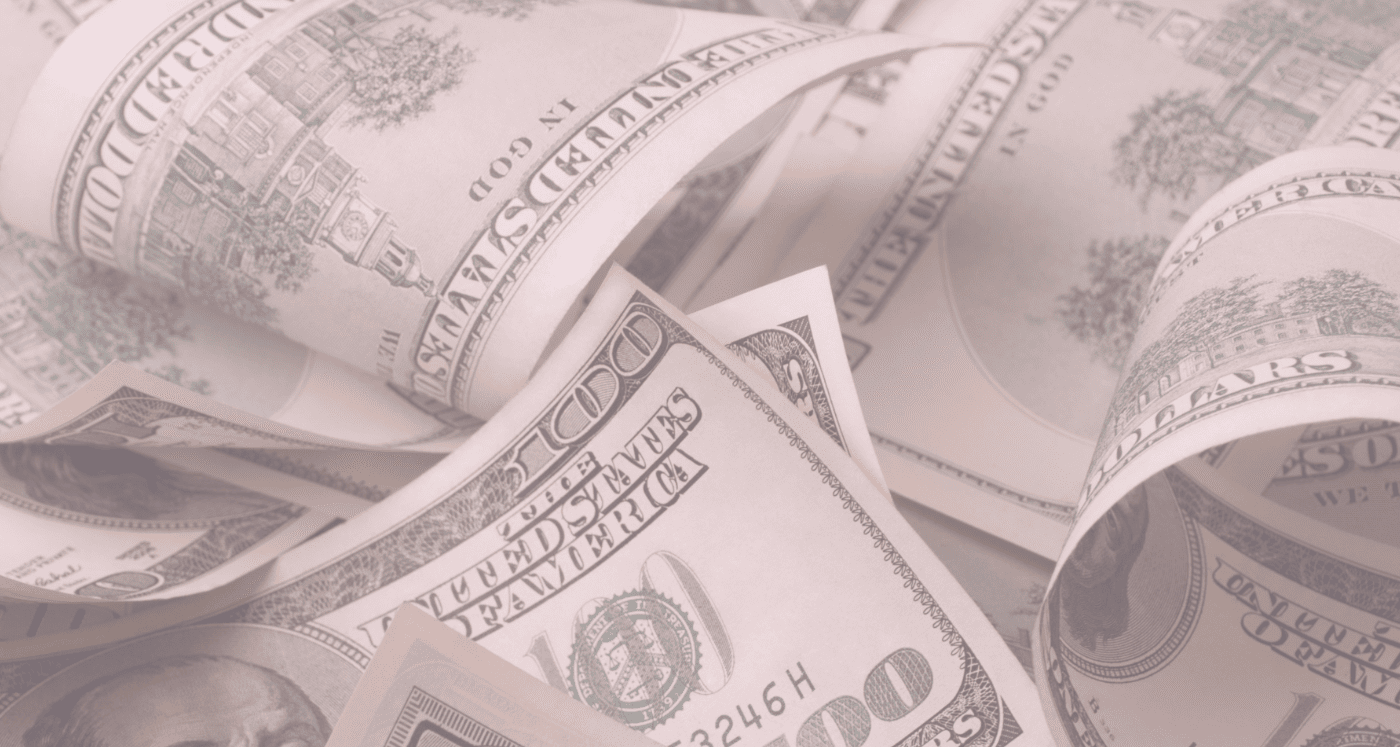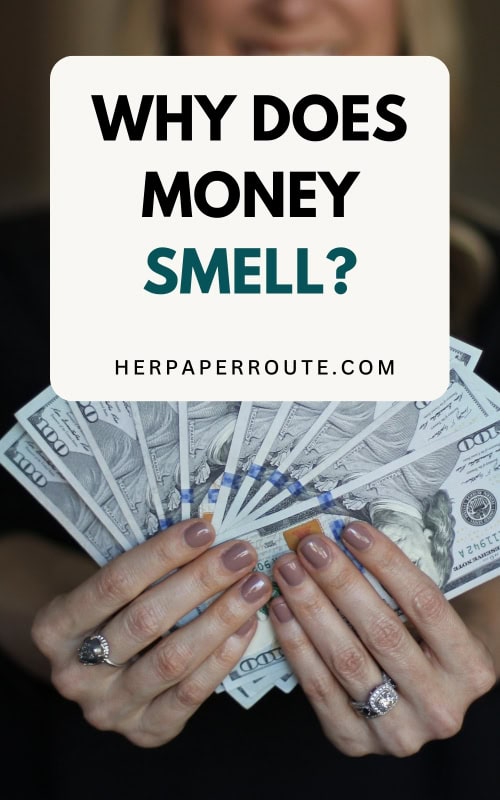Why Does Money Smell?

The iconic US Dollar bill is instantly recognizable- for more than just good old George Washington smack bang in the middle. One of the other things a dollar is famous for is the instantly recognizable smell.
Money, in general, has a certain whiff about it. Some say it is the smell of success- others say it is the stench of greed.
As an affiliate partner of various brands and sponsored content, HerPaperRoute may earn commission on qualifying purchases. Disclaimer
What I want to know is what science says. Scientifically speaking, why does money smell the way it does?
Every currency has its own blend, but today I am focused on the US Dollar. If you, like me, have ever wondered what exactly that smell is, you have come to the right place to find out.
What Money is Made of Contributes to its Smell
It seems that the number one reason for the unique smell of US banknotes is what they are made of. Dollar notes are made of 75% cotton and 25% linen according to the US Department of the Treasury.
More precisely, they are printed on special paper made of those materials. To give a quick comparison: Euro notes are 100% cotton paper, and Canadian Dollars are polymer.
Both cotton and linen are highly absorbent. Because of this, every scent they come into close contact with clings to the surface and seep into the bill itself.
How Money Gets Smells from the Journey
Now that we know that the material of a US Dollar bill soaks in smells from wherever it goes, it makes sense that they are fairly pungent. Think about how far a dollar bill travels in its lifetime.
On average, a one-dollar bill stays in circulation for six or seven years- some even as long as 14 years! It is estimated that each bill passes between 110 people per year.
Imagine almost 800 people’s smells combined in one piece of paper. This sounds really gross, right?
Before the note makes it into somebody’s wallet, it absorbs the unique ink used to print money. The metallic fumes from the factory they are pressed in also become part of the story.
Money is already marked with a unique smell before it even makes it out into the world. Then, they get stuffed in pockets (and other places), dropped on Subway station floors, thrown into purses with an untold mixture of personal items, and run through the washing machine more than once.
Some of the surprisingly common scents detected on single dollar bills in the US include hand soap, narcotics, soil, and even 💩!
You are never going to look at that scrunched-up dollar bill the same way again, are you?
Each person that handles a dollar adds their unique scents. Certain substances hold stronger than others. That is why a brand-new dollar smells so different from one that has been doing the rounds for several years.
Why Does Money Smell – Conclusion
In short, money smells because of the highly absorbent materials used to create it. It holds scents from every step of the journey- from the ink and metal of the printing press to the leather of every wallet it ever lives in.
Considering one single US Dollar bill passes between more than 100 people every year- that is a lot of smells.
Related Articles:
- Does Money Have Intrinsic Value?
- Can Wet Money Still Be Used?
- Why Are Presidents on Money?
- What Gives Money Its Value?

Follow along on Instagram!










![How to Move Out at 18 [Financial Must-Do's] 11 Young adult reading How to Move Out at 18 step by step](https://herpaperroute.com/wp-content/uploads/2022/04/How-to-Move-Out-at-18-768x410.jpeg)